VNU and PwC hold workshop on ESG practices
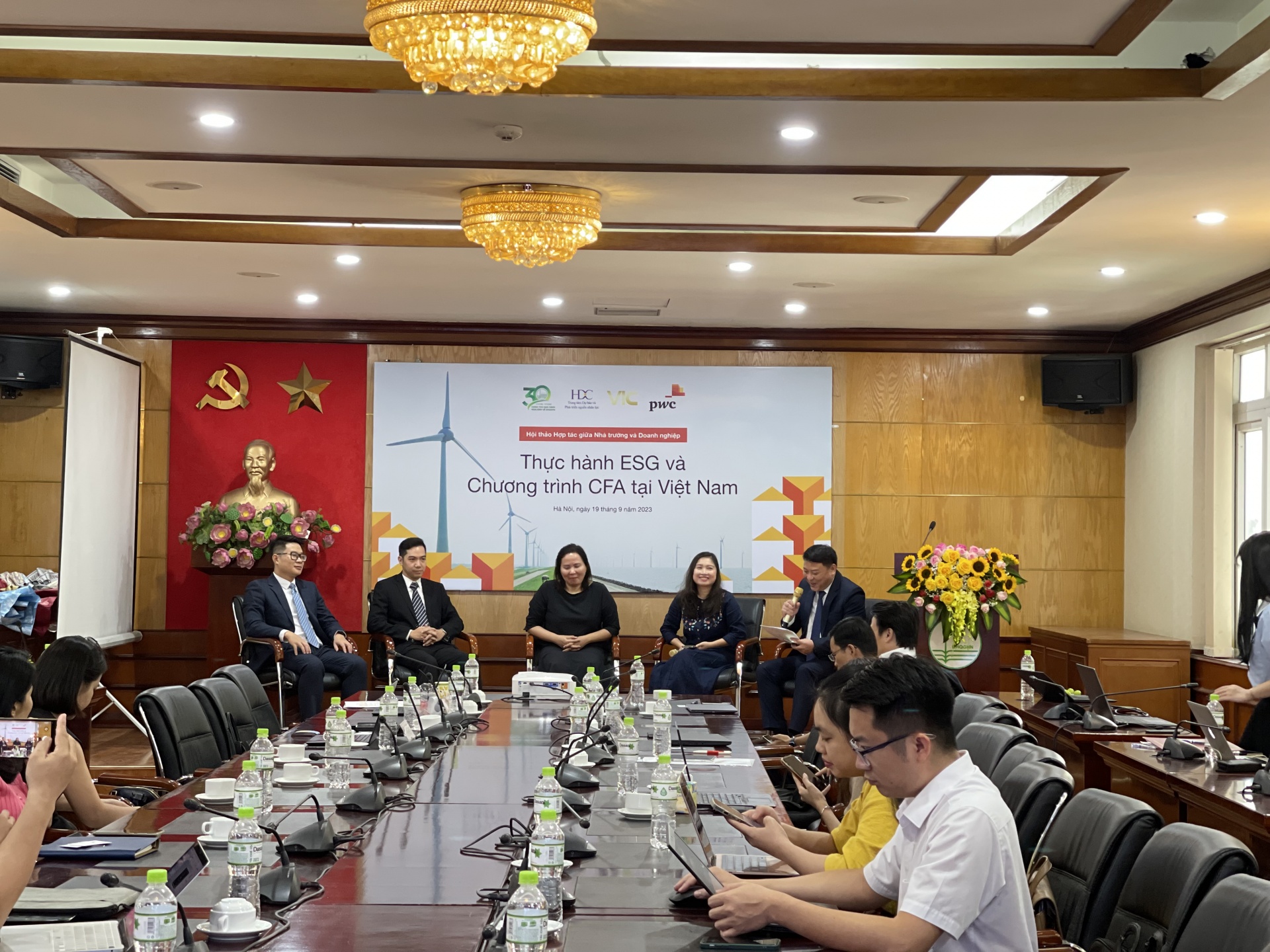 |
According to PwC's research, 96 per cent of Vietnamese consumers are willing to pay for products produced by companies with good business ethics, while 68 per cent of the next generation believes that businesses have a responsibility to combat climate change and its related consequences.
At a business level, ESG commitment levels are high, with 80 per cent of companies having made ESG commitments or plans to do so soon.
Pham Hai Au, director of Business Solutions at PwC Vietnam, noted that ESG is a topic that has attracted significant attention in Vietnam, ranging from press coverage, events, and conferences, to reports, surveys, and research.
“Stakeholders have articulated their views on ESG practices, setting increasingly high expectations when implementing sustainable operations and the transparent disclosure of non-financial information,” he said.
“ESG practices are seen as a transformative journey that creates long-term value and opens up new opportunities for businesses,” Au added.
From an investment perspective, Pham Anh Duy, senior manager of Capital Projects and Infrastructure at PwC Vietnam, credited the branding value as one of the most critical factors for investors.
“When investing in green energy projects, investors can avoid costs related to emissions by complying with state policies that encourage companies to reduce emissions. This can lead to increased profits and enhanced brand value for both parties,” he said.
"As the economy develops, the focus on net-zero and the energy transition only increases, which makes it easier for green projects to receive support and gain brand recognition."
“It is expected that by 2025, Vietnam will have its first carbon credit market, and by participating in sustainable projects, investors can obtain credits for trading,” he noted.
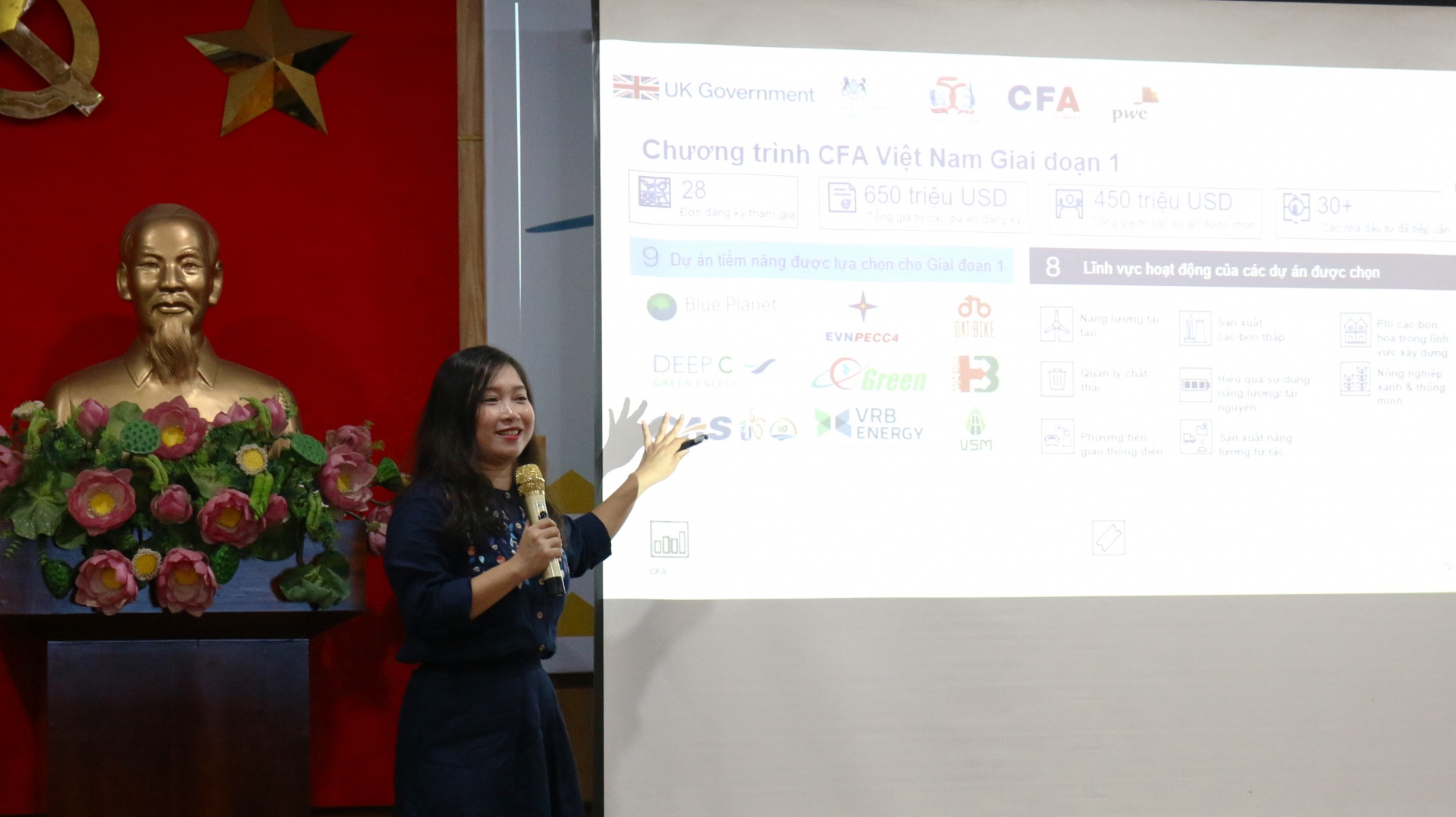 |
While capital is a crucial issue when implementing ESG projects, the Climate Finance Accelerator (CFA) has been mentioned as one of the support solutions, offering development projects the chance to connect with potential investors, acquire information, and establish a network of stakeholders in the climate finance sector.
However, difficulties in implementing ESG commitments are still apparent. According to PwC’s Vietnam ESG Readiness Report 2022: From Ambition to Impact, 67 per cent of businesses found the lack of clear and official transparency regulations a significant challenge.
71 per cent had not started, or had just begun, to understand the necessary ESG data for reporting, 72 per cent had not identified indicators for monitoring management, and 70 per cent had little or no external ESG reporting.
Assoc. Prof. Dr. Truong Thi Nam Thang, director of the Centre for Entrepreneurship and Social Innovation at the National Economics University, suggested that businesses should participate in support programmes like CFA in various countries.
“Communication efforts are also essential, and business leaders should educate themselves to change their perceptions and understand that ESG is crucial for allocating human and financial resources,” she noted.
“In addition to partner requirements, businesses need to view the green transition and ESG practices as a driving force for innovation, ultimately creating more unique products in the market,” Thang concluded.
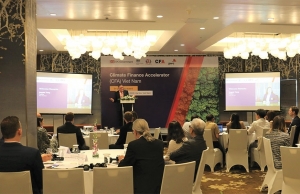 | Variety of support on hand to boost green projects High-level events and in-depth workshops were held last week as part of the Climate Finance Accelerator programme, allowing low-carbon project leaders to meet with investors and financial institutions in efforts to accelerate Vietnam’s green journey. |
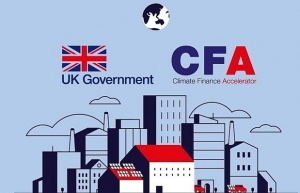 | UK begins second phase of climate finance accelerator in Vietnam The UK Embassy in Vietnam has announced a new wave of capacity-building support for low carbon projects that can benefit communities across the Southeast Asian nation. |
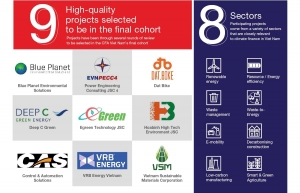 | Innovative low-carbon projects join UK's climate finance scheme Nine low-carbon Vietnamese initiatives, representing such diverse sectors such as renewable energy, resource efficiency, agriculture, decarbonising construction, and waste management have been chosen to take part in the first wave of the UK government's $14.4 million Climate Finance Accelerator (CFA) scheme. |
What the stars mean:
★ Poor ★ ★ Promising ★★★ Good ★★★★ Very good ★★★★★ Exceptional
Related Contents
Latest News
More News
- Agro-forestry and fisheries exports jump nearly 30 per cent in January (February 09, 2026 | 17:45)
- Canada trade minister to visit Vietnam and Singapore (February 09, 2026 | 17:37)
- New tax incentives to benefit startups and SMEs (February 09, 2026 | 17:27)
- Vietnam forest protection initiative launched (February 07, 2026 | 09:00)
- China buys $1.5bn of Vietnam farm produce in early 2026 (February 06, 2026 | 20:00)
- Vietnam-South Africa strategic partnership boosts business links (February 06, 2026 | 13:28)
- Mondelez Kinh Do renews the spirit of togetherness (February 06, 2026 | 09:35)
- Seafood exports rise in January (February 05, 2026 | 17:31)
- Accelerating digitalisation of air traffic services in Vietnam (February 05, 2026 | 17:30)
- Ekko raises $4.2 million to improve employee retention and financial wellbeing (February 05, 2026 | 17:28)

 Tag:
Tag:




















 Mobile Version
Mobile Version